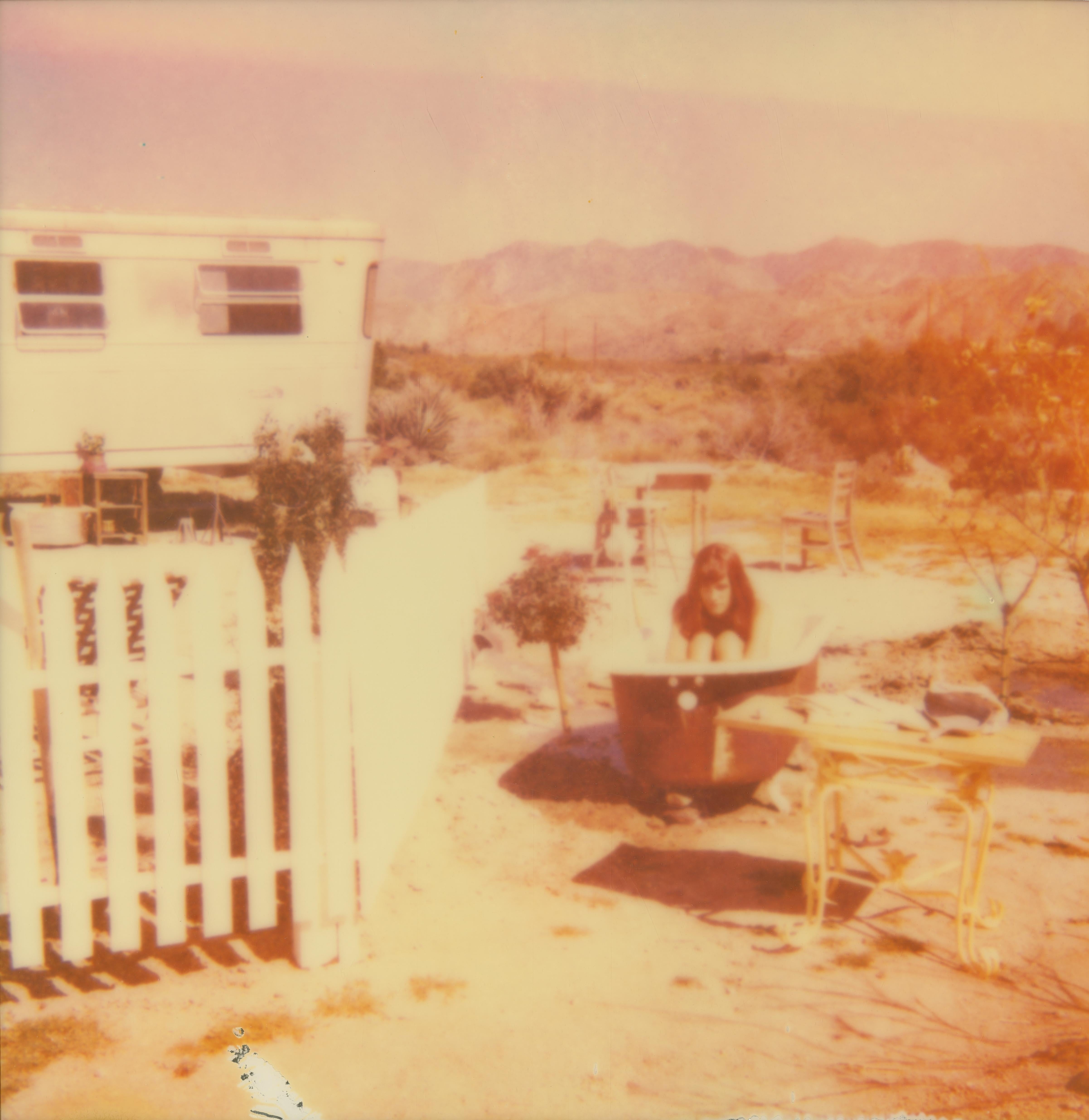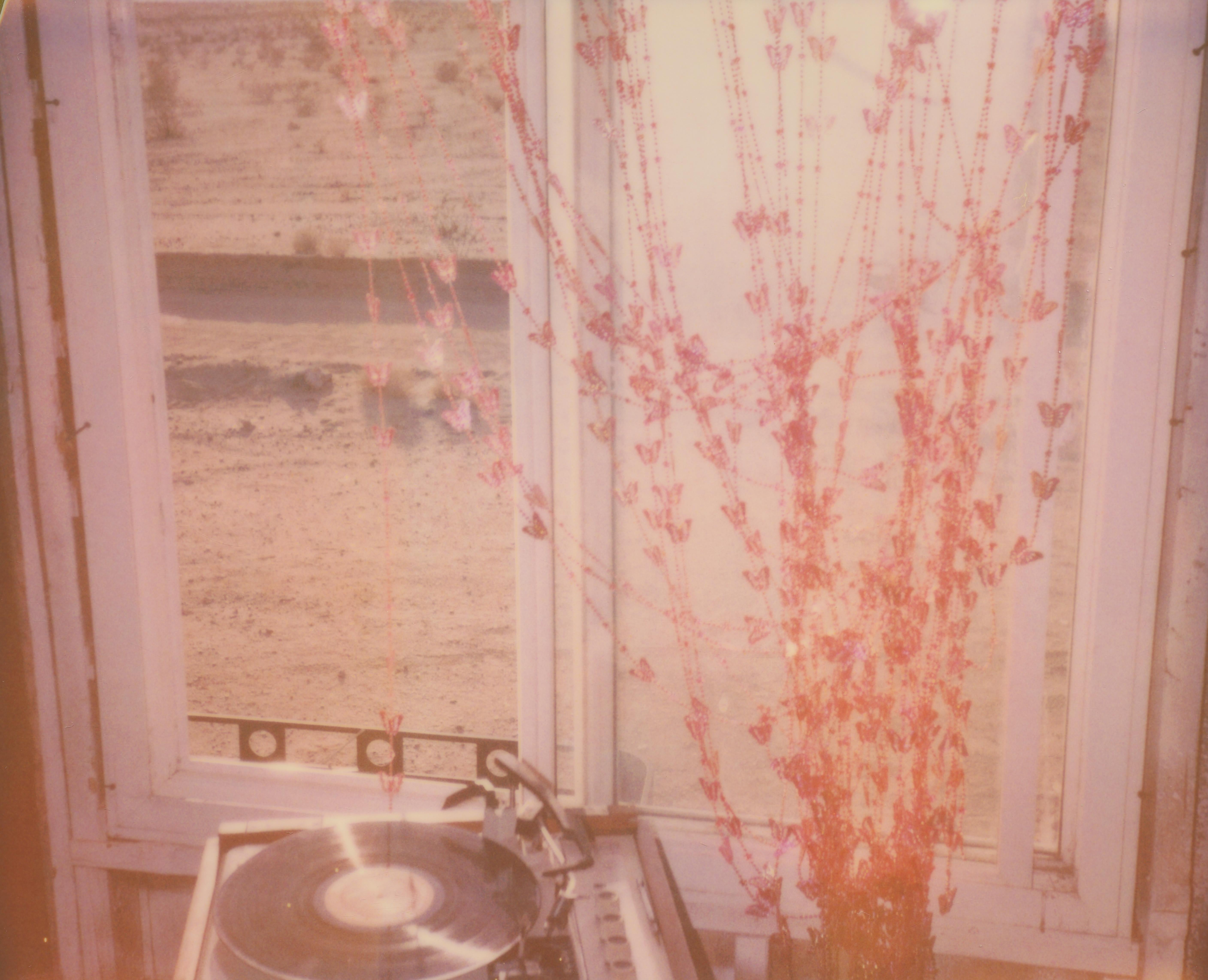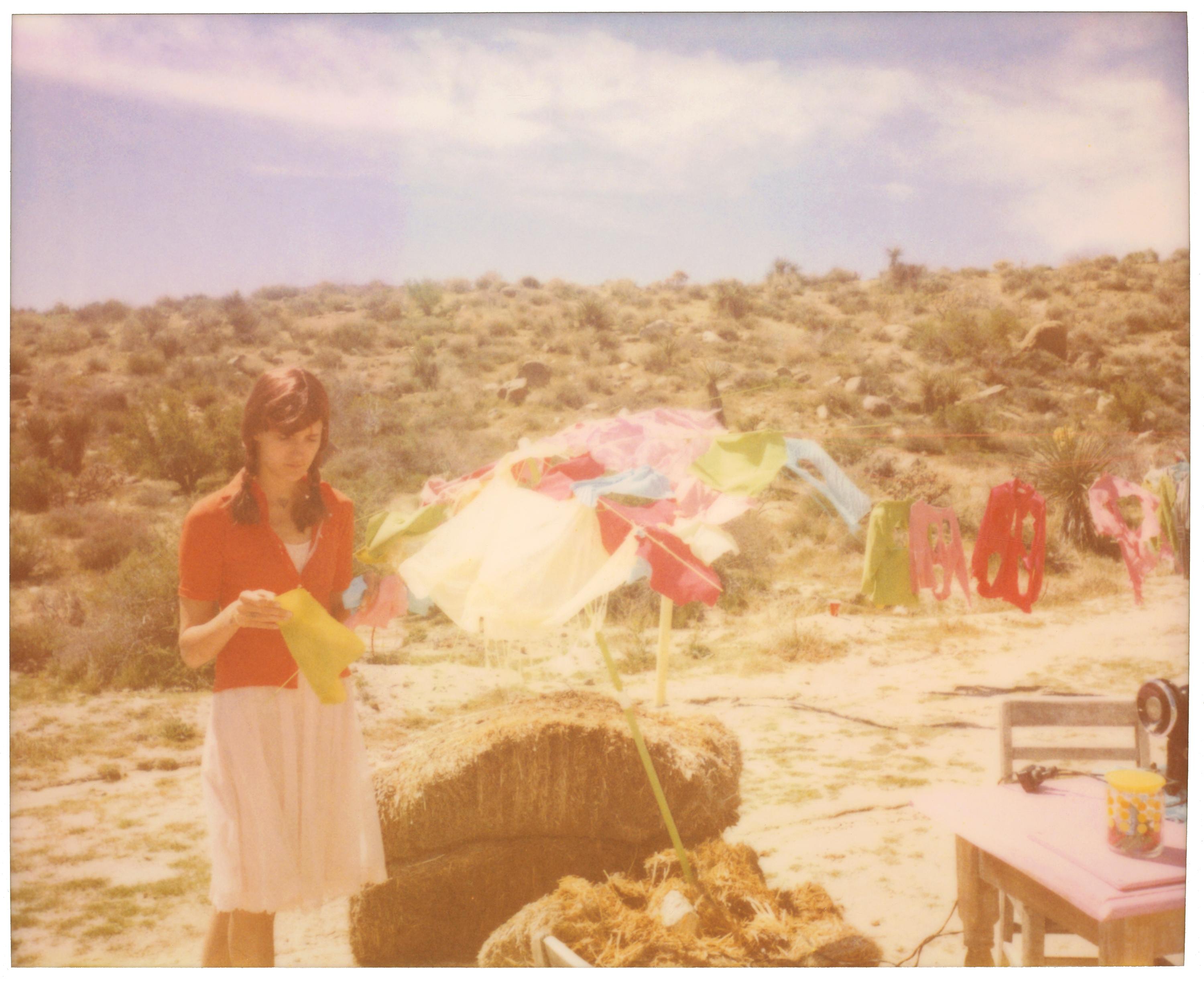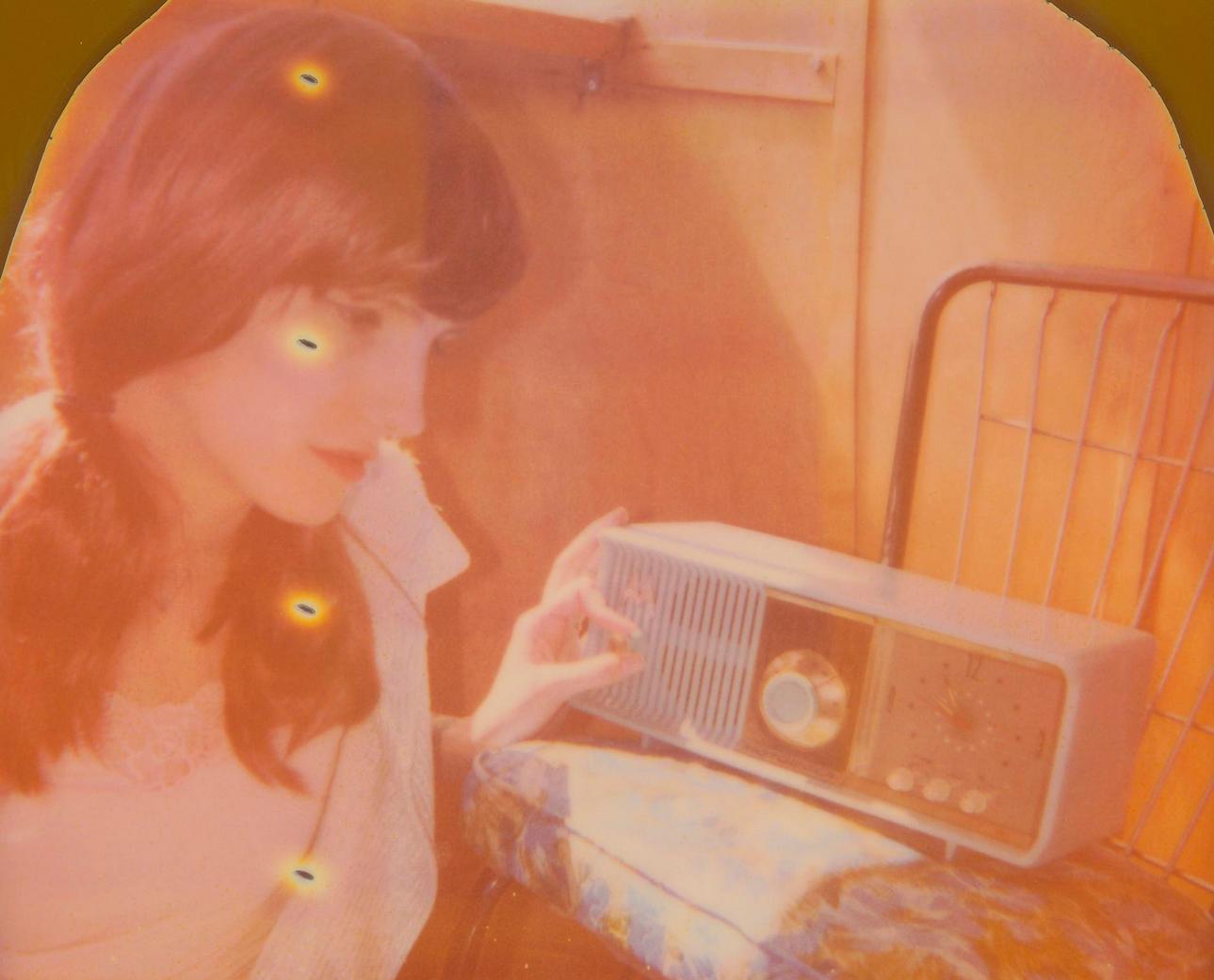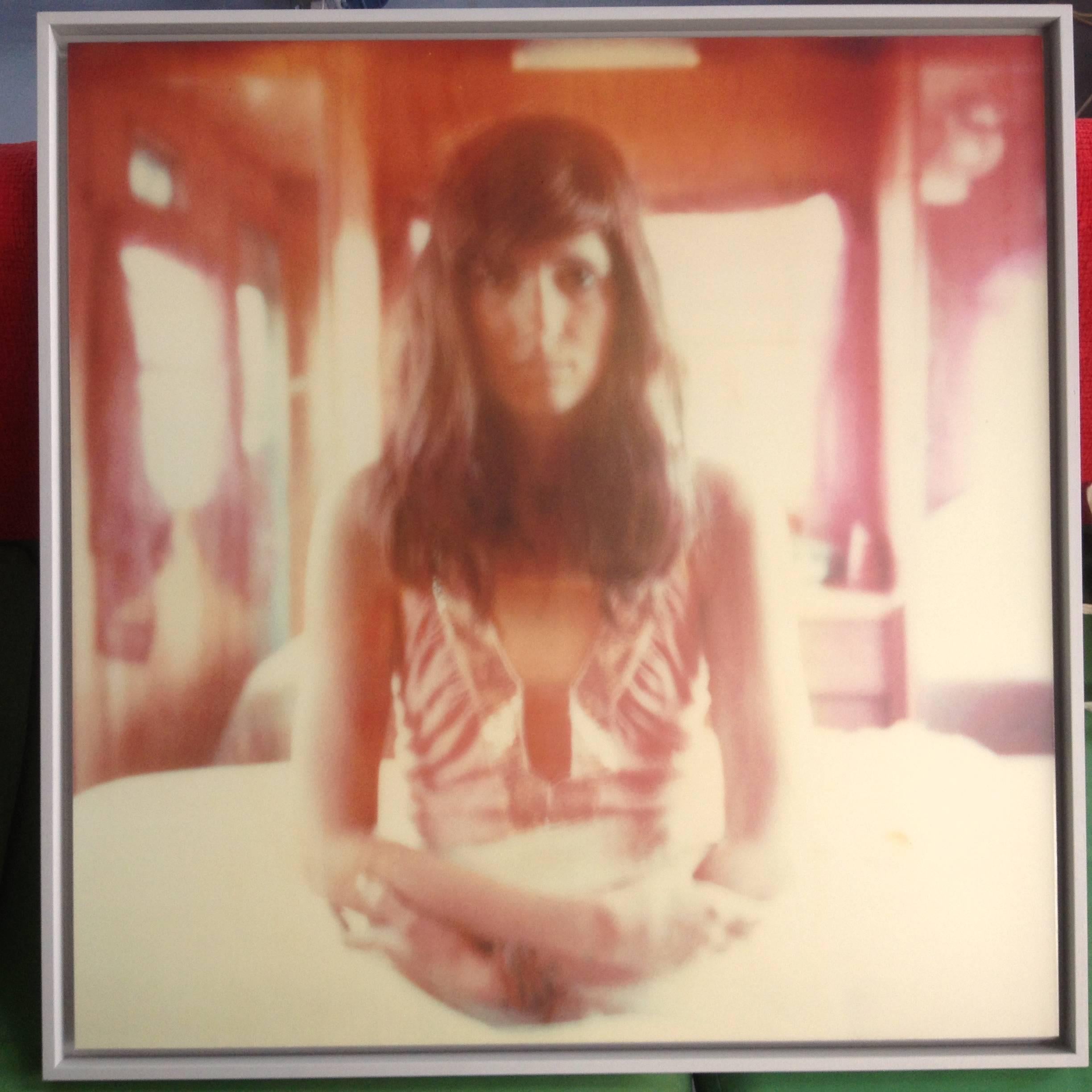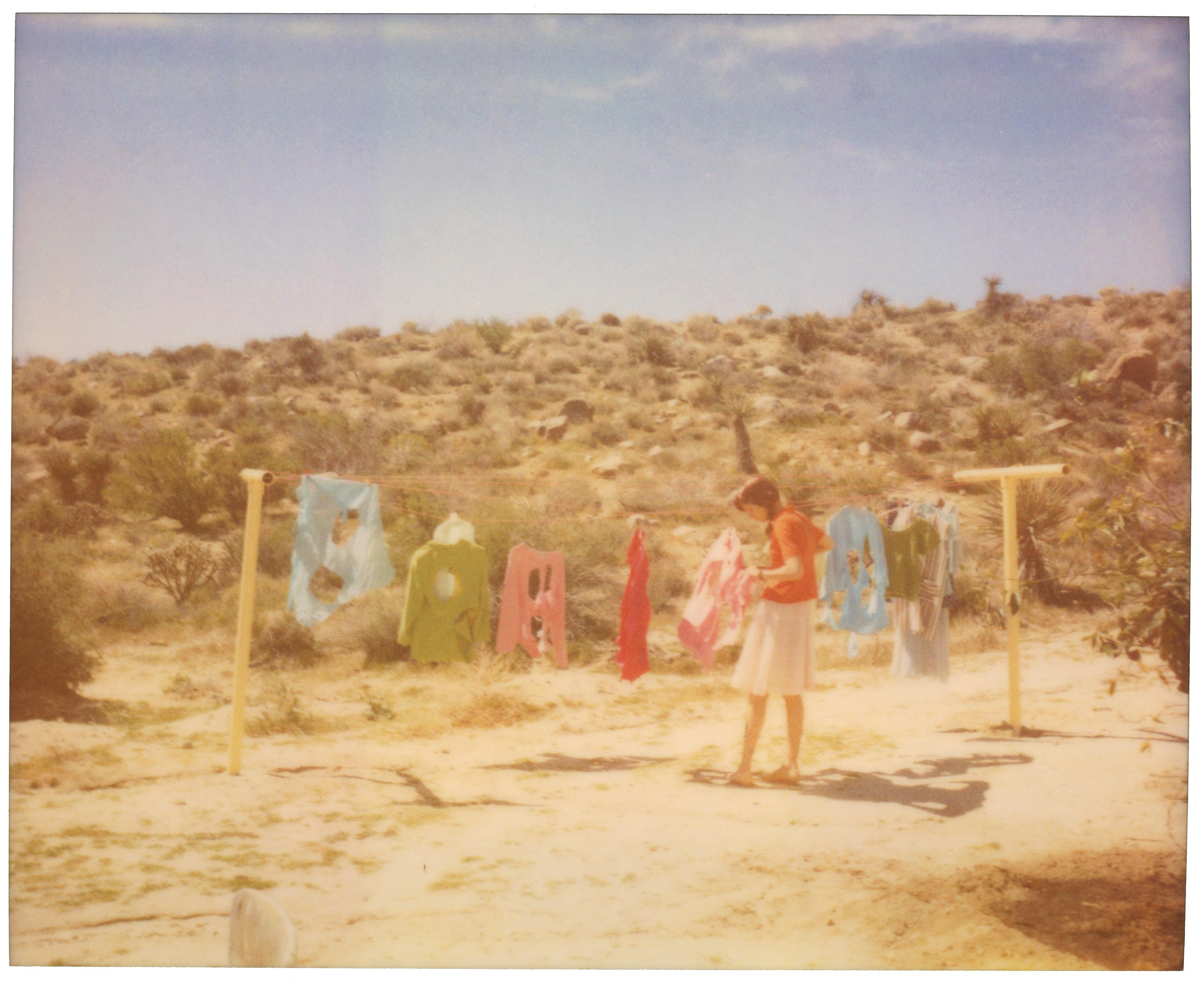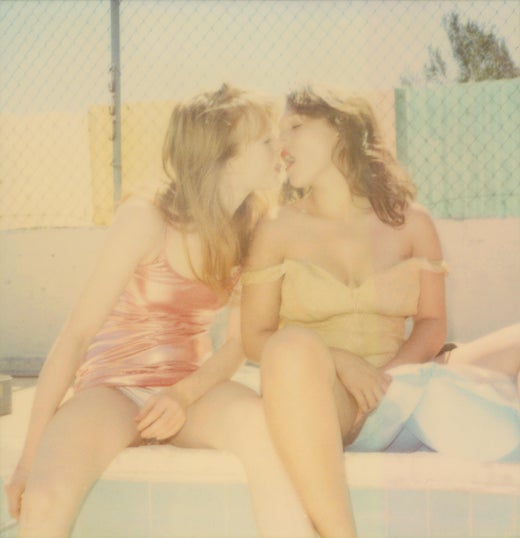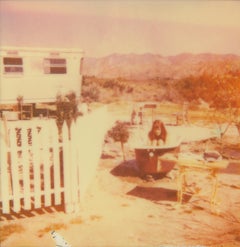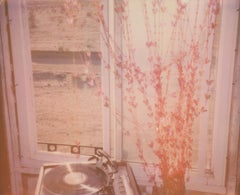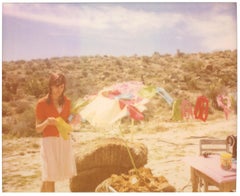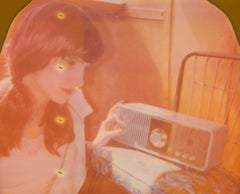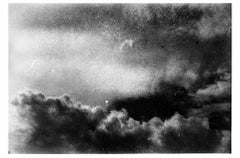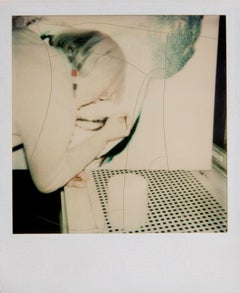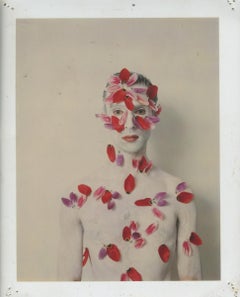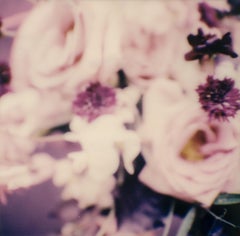Items Similar to A love song (The Girl behind the White Picket Fence) - Polaroid
Want more images or videos?
Request additional images or videos from the seller
1 of 2
Stefanie SchneiderA love song (The Girl behind the White Picket Fence) - Polaroid2013
2013
$455.53
£338.39
€380
CA$632.55
A$690.26
CHF 362.05
MX$8,383.41
NOK 4,522.23
SEK 4,273.73
DKK 2,892.90
About the Item
A love song (The Girl behind the White Picket Fence) (The Girl behind the White Picket Fence) - 2013
20x20cm, (ask about a larger sized edition)
Edition of 10,
Archival C-Print, based on a Polaroid,
Certificate and Signature label, artist Inventory #13916.
Not mounted.
Stefanie Schneider's
THE GIRL BEHIND THE WHITE PICKET FENCE
Stefanie Schneider’s taken her artwork to film. With over 10 years in the international art world to support her, ‘The Girl behind the White Picket Fence’ is Schneider’s first feature film. A dedicated Polaroid fan since the mid 1990’s who mastered the analog medium to it’s final dying breath. Since Polaroid stopped making the best film in the world, it’s been Schneider’s goal to buy as much as she could find. Knowing that there will never be another chance to fulfill her lifelong dream to make a movie, using her own original artwork style. Schneider scoured the Internet for Polaroid film. Trucks deliver boxes upon boxes of expired Polaroid film. Testing the randomly working film takes days, turning to years. Years of buying film, script writing, prop production, actor contracts, all done in little bits. Shooting film in California and compiling in Berlin, Germany, back and forth with each season. This film is the result of a dream that started with friends she loved such a long time ago. It’s dedicated to them. They know who they are.
An artists world of movie stills, ‘The Girl Behind the White Picket Fence’ is a succession of Polaroid film stills. One after another, this film takes this to the limit and still delivers. Sometimes quickly, sometimes slowly, flowing with the rhythm of the music or in the energy the film portrays. The gaps keeps the viewer paying close attention but after a little time, you no longer notice. All photographs are real analog Polaroid film so this is a one off, never to be replicated, a complete window into an artists mind as she sees the world. Sunny, hot, in love, open spaces evoking freedom but also banishment.
This project was that each actor would write their own story about love and Schneider would piece them together to make some sense of fate. Ultimately, this work is the vision of Stefanie Schneider. As with any dream, the finished result came about not as originally planned but it happened and will never happen again. This film is about old fashioned analog beauty, combining love, choices of life. It’s a film about searching, about truth and sometimes where that truth takes us.
This film started out with a vision of grand collectiveness with all participants coming from Schneider’s time in Hollywood ranging from directors to actors, producers to agents and writers to weirdos. The American dream was alive and well in this motley group who fell in love with Schneider’s idea to capture a story about love on Polaroid film.
Funding started with Schneider procuring film from all over the world, creating a interactive website for the artists to collaborate on together and
collecting material for the script. Shooting locations were scouted and life size props built.
Caroline Haertel from ‘micafilm’ based in Berlin Germany joined Schneider who then brought in Kirsten Niehaus from ‘Medienboard Berlin-Brandenburg’ and Barbara Haebe from Arte TV in Germany. Both of whom have been very supportive.
The concept began to take shape. The realization of how to actually make the film became apparent with each tested Polaroid first taken, scanned, and then finally sequenced to about 4000 frames from over 5,000 actual Polaroid photographs. Each requiring about 30 minutes of work.
The center of this story is the ‘Lonely Hearts Radio Station’ DJ, played by Steve Marshall who talks to the searching broken hearted in the southern Californian desert. A sad young girl calls in to better understand what is going on which results in an unexpected chain of events. Through dreams, memories and even mystics, Heather finds that you never know with whom, love finds you. There are signs if you only listen. If only, you’re aware.
Main characters:
Hans, the mystic played by the veteran actor Udo Kier.
Heather’s a young girl who’s lost her parents played by Heather Megan Christie
Radio station DJ played by the comic Steve Marshall
Hank is the local garbage man played by Kyle Larson.
A story about past love, present and future love. Emotions are poignantly explored while clashing with the brilliant color of Polaroid film. This is a Polaroid analog film experience about love that flirts with the serendipity of our subconscious.
Stefanie Schneider's new photographic works tell fantastic stories about her adopted Californian home. She seeks out faded American myths and distils auratically charged reality in a very personal and surprising way. She uses out-of-date Polaroid film, and the blemishes caused by the degenerated film stock, - are included in the composition in a painterly way. Exposure mistakes and low budget movie effects are combined to alienating effect. Everything shimmers and flickers before our eyes. The artist plays with the authentic poetry of the amateur, mixing strangely dreamy staging with random photochemical events.
In the 16-part work Frozen, which is characterized by a strangely transcendent mood in the lighting, film-still-like pictorial clusters come together to form a mysterious story, with the artist herself as the lonely protagonist. the aesthetic is reminiscent of early Lynch films. The components of the elliptically choreographed events are scenes from an enchanted, gleaming winter landscape, together with "staged snapshots" of a pale young woman in her underskirts, who radiates the troubled reality of a mirage with her sleep walking presence. The story is presented in the manner of cinematic flashbacks or dream sequences. Stage blood and a knife are used to evoke a crime of passion whose surreal attractiveness is derived from the scenic openess of what is shown. The deliberate use of old instant picture stock establishes in a richly faceted way the ephemeral quality of vulnerability and transience within a reality that is brittle from the outset.
The American Stars and Stripes, recently updated as the absolute epitome of a patriotic signifier, is the subject of the 9-part work Primary Colors (2001). Schneider's reassuringly European view, free of undue emotion, presents the Stars and Stripes motif in a strangley alienated form: she shows stills with phases of fluttering violently in the wind, even torn in some cases, and the poor film stock emphazises the fragility of the icon even more.
(translated from German by Michael Robinson)
- Creator:Stefanie Schneider (1968, German)
- Creation Year:2013
- Dimensions:Height: 7.88 in (20 cm)Width: 7.88 in (20 cm)Depth: 0.04 in (1 mm)
- Medium:
- Movement & Style:
- Period:
- Condition:
- Gallery Location:Morongo Valley, CA
- Reference Number:1stDibs: LU652310301522
Stefanie Schneider
Stefanie Schneider received her MFA in Communication Design at the Folkwang Schule Essen, Germany. Her work has been shown at the Museum for Photography, Braunschweig, Museum für Kommunikation, Berlin, the Institut für Neue Medien, Frankfurt, the Nassauischer Kunstverein, Wiesbaden, Kunstverein Bielefeld, Museum für Moderne Kunst Passau, Les Rencontres d'Arles, Foto -Triennale Esslingen., Bombay Beach Biennale 2018, 2019.
About the Seller
4.9
Platinum Seller
Premium sellers with a 4.7+ rating and 24-hour response times
Established in 1996
1stDibs seller since 2017
1,042 sales on 1stDibs
Typical response time: 3 hours
- ShippingRetrieving quote...Shipping from: Morongo Valley, CA
- Return Policy
Authenticity Guarantee
In the unlikely event there’s an issue with an item’s authenticity, contact us within 1 year for a full refund. DetailsMoney-Back Guarantee
If your item is not as described, is damaged in transit, or does not arrive, contact us within 7 days for a full refund. Details24-Hour Cancellation
You have a 24-hour grace period in which to reconsider your purchase, with no questions asked.Vetted Professional Sellers
Our world-class sellers must adhere to strict standards for service and quality, maintaining the integrity of our listings.Price-Match Guarantee
If you find that a seller listed the same item for a lower price elsewhere, we’ll match it.Trusted Global Delivery
Our best-in-class carrier network provides specialized shipping options worldwide, including custom delivery.More From This Seller
View AllThe Girl I (The Girl behind the White Picket Fence) - Contemporary, Polaroid
By Stefanie Schneider
Located in Morongo Valley, CA
The Girl III (The Girl behind the White Picket Fence) - 2013
38x36cm,
Edition of 10.
Analog C-Print, hand-printed by the artist on Fuji Archive Crystal Paper, matte surface,
base...
Category
2010s Contemporary Color Photography
Materials
Archival Paper, Photographic Paper, C Print, Color, Polaroid
The Lonely Hearts Show (The Girl behind the White Picket Fence)
By Stefanie Schneider
Located in Morongo Valley, CA
The Lonely Hearts Show
(The Girl behind the White Picket Fence) - 2013
20x24cm,
Edition of 10,
Digital C-Print, based on a Polaroid.
Artist inventory number: 16307.
Signature...
Category
Early 2000s Contemporary Color Photography
Materials
Archival Paper, Photographic Paper, C Print, Color, Polaroid
Endless Possibilities (The Girl behind the White Picket Fence) - Polaroid
By Stefanie Schneider
Located in Morongo Valley, CA
Endless Possibilities (The Girl Behind the White Picket Fence) - 2013
20x24cm,
Edition of 10, plus 2 Artist Proofs.
Archival C-Print, based on...
Category
2010s Contemporary Color Photography
Materials
Archival Paper, Photographic Paper, C Print, Color, Polaroid
What happened yesterday? (The Girl behind the White Picket Fence) - Polaroid
By Stefanie Schneider
Located in Morongo Valley, CA
What happened yesterday? (The Girl behind the White Picket Fence) - 2008
20x20cm,
Edition of 10,
Archival C-Print, based on the Polaroid.
Certificate and Signature label.
Artis...
Category
Early 2000s Contemporary Color Photography
Materials
Photographic Film, Archival Paper, C Print, Color, Polaroid
Gravity (The Girl behind the White Picket Fence) - Polaroid, Contemporary, Color
By Stefanie Schneider
Located in Morongo Valley, CA
Gravity (The Girl behind the White Picket Fence) - 2013
80x80cm,
Edition 2/5.
Analog C-Print printed on Fuji Archive Paper, hand-printed by the artist,
based on the Polaroid.
Mou...
Category
2010s Contemporary Color Photography
Materials
Wood, Archival Paper, Photographic Paper, C Print, Color, Polaroid
Side Effects (The Girl behind the White Picket Fence) - Polaroid, Portrait
By Stefanie Schneider
Located in Morongo Valley, CA
Side Effects (The Girl Behind the White Picket Fence) - 2013
20x24cm,
Edition of 10, plus 2 Artist Proofs.
Archival C-Print, based on the original Polaroid.
Signature label and certificate.
Artist Inventory #13303.
Not mounted.
Offered is a piece from the movie: The Girl Behind the White Picket Fence. Written and directed by Stefanie Schneider
A tale told with blemished and expired Polaroid film about the hopes and dreams of a newly orphaned girl after losing her parents who lived in the Californian desert in an old travel trailer.
-filmed with Polaroid film stock and Super-8 footage, overlaid with poetic voice-over monologue - this feature film creates a dynamic kaleidoscope of words and pictures, a dreamy tale that channels Terrence Malick, Gus Van Sant, and pages torn from a lonely girl's journal.
(Palms Springs life magazine / Caroline Ryder)
Stefanie Schneider
By Caroline Ryder
Inside the trailer are period accents—a vintage radio, vintage fridge, little crocheted doilies, and dusty gilt-framed photographs. It’s a surreal home-sweet-home, an Americana fantasy as imagined by German artist and experimental filmmaker Stefanie Schneider whose work is so inspired by the desert landscape, she made it her home in 2005. “There’s a completely different light here than in Germany, a beautiful light,” says Schneider, whose property in Morongo is dotted with vintage trailers. They surround her midcentury home and serve as sets for her photoshoots or as guest lodgings for her friends from Hollywood and Berlin. “But what I really love about the desert is the desolation,” she continues. “The sense of hope for something that might or might not come. It’s easy to see our dreams projected in the desert.”
Famed for shooting trailer park chic fine art photographs exclusively on vintage Polaroid film, Schneider recently completed her most ambitious project to date—a feature film made entirely of Polaroid stills (4000 images in total), the story set around her magnificent 1950s trailer. The film, called “The Girl Behind The White Picket Fence” tells the story of a broken-hearted girl who lives in the trailer. Her name is Heather, and she is played by model Heather Megan Christie, girlfriend of actor Joaquin Phoenix, and former partner of Red Hot Chili Peppers singer Anthony Kiedis, with whom she has a son. Heather stars opposite Kyle Larson (who plays ‘Hank’), a real-life gypsy fisherman who catches crab in Alaska when he’s not surfing in Southern California. Neither of the two had ever acted before, and never in the history of movie-making has a director shot a film entirely on Polaroid film.
“There was great difficulty shooting a film this way,” says Schneider, who, with her long straight hair, wide innocent eyes, and thick-framed glasses, conjures an art-house Gretel. “If I had used a regular camera I would have had 36 exposures per minute, much faster and easier than using the old Polaroid camera which takes a long time to shoot one frame. Also, sometimes it doesn’t shoot at the exact moment you think it’s going to—but that’s really great because then you miss the perfect moment…and often those are the best shots.” Individually, the Polaroid photographs that comprise 29 PALMS, CA stand alone, but together and in sequence, filmed with super 8 and 16mm film stock and overlaid with poetic voice-over monologues, they create a dynamic kaleidoscope of words and pictures, a dreamy tale that channels Terrence Malick. Gus Van Sant, and pages torn from a lonely girl’s journal.
The idea to shoot a movie in this way came about in 2004 when Schneider was working with leading German director Mark Forster (Monster’s Ball, Finding Neverland, Quantum of Solace) on his film Stay. She had met Forster at director Wim Wender’s birthday party in Hollywood. A few years later, Forster asked Schneider to shoot Polaroids of scenes from Stay as he filmed; he used those photographs for dream and memory sequences in the movie. For the first time, Schneider saw her Polaroids strung together in sequence, moving with rhythm like a flipbook, in the context of a story. When Forster urged her to consider making a feature film using that technique, the seed of 29 PALMS, CA was sown. She mentioned the idea to her good friend German actor Udo Kier, who also gave the idea a big thumbs up, and agreed to play the part of a mysterious shaman in the film.
Thanks to her strong reputation in the art world and her Hollywood connections, getting talented people on board was the easy part (for a while, Charlotte Gainsbourg was pegged to play the starring role, although she pulled out two weeks before shooting commenced because she was pregnant and not fit to travel to the desert.) The hard part was finding the perfect trailer—and bringing it to the desert. “This trailer almost killed us,” says Schneider’s partner Lance Waterman, who lives and works with Schneider in Morongo Valley. After finding it on eBay, the couple drove to Utah to pick it up, the plan being to tow it all the way back to the high desert themselves. Bad idea. “We were driving down a hill with this enormous trailer behind us when we realized that if we wanted to stop, there would be no way to do so without the trailer crushing us,” says Waterman. Adds Schneider: “Lance was even giving me instructions on how to jump out of the truck if we needed to.” Thankfully the road leveled and as soon as they were able to slow down and pull over, they called a professional towing company, which transported the trailer the remaining distance to Morongo Valley.
Filming took place in Spring 2011 and 2012. Schneider recently submitted the film to major film festivals in Europe and the US, and it will be broadcast in 2013 by leading German television channel, Arte. While Schneider may come from a long tradition of photographers-turned-filmmakers—Stanley Kubrick started out as a photographer, as did Ken Russell (Tommy, Women in Love) and Larry Clark, who was a controversial fine art photographer before directing smash hit Kids—she does not see her future in Hollywood, directing blockbusters. Not necessarily. “I don’t think I want to make more films,” she says. “The actors were saying they would love to work with me again, and were asking if I would like to make other movies. But being on movie sets is far too stressful, and at least with this, I was in complete power of what was going on creatively. That said, if this gets a lot of acclaims…we can always think again. One should never say never.”
Film features
original soundtrack with songs by Adam Weiss, Daisy McCrackin, Billy Harvey, Sophie Huber, Zoe Bicat, Max Sharam, Cheyenne Randall...
Category
2010s Contemporary Color Photography
Materials
Archival Paper, Photographic Paper, C Print, Color, Polaroid
You May Also Like
Expired_14_2020 - Photograph by Serena Zeppilli
Located in Roma, IT
This photograph Expired_14_2020 was taken by the Italian photographer Serena Zeppilli.
It is part of the series "I was looking for something that I...
Category
21st Century and Contemporary Contemporary Figurative Photography
Materials
Photographic Paper
Polaroid of Andy Warhol Painting
By Andy Warhol
Located in Beverly Hills, CA
This work is unique photographic work taken under the direction of Andy Warhol.
Provenance: Gift of the artist, to the personal collection of Ronnie Cutrone to the current owner
Wo...
Category
1980s Pop Art Color Photography
Materials
Polaroid
Untitled Polaroid 23, Unique Self Portrait Photograph by Dietmar Busse
By Dietmar Busse
Located in New York, NY
Untitled Polaroid 23, Unique Self Portrait Photograph by Dietmar Busse.
2001
Signed and dated in black ink, verso
Polaroid (Unique)
5 x 4 inches, image
Contact gallery for price.
Category
Early 2000s Contemporary Photography
Materials
Polaroid
Fleur du Mal - Large Contemporary Photographic Print from Unique Color Polaroid
By Pia Clodi
Located in Zürich, CH
A bloomy view - Polaroid Photographic Print Framed by Pia Clodi
The blue tones within her work should not be interpreted as coldness, as her works are full of fleeting moments withi...
Category
21st Century and Contemporary Contemporary Figurative Photography
Materials
Photographic Film, Photographic Paper, Carbon Pigment, Polaroid
$1,822 Sale Price
20% Off
Free Shipping
Vegas 16 15– Emma Summerton, Polaroid, Architecture, Motel, Street photography
By Emma Summerton
Located in Zurich, CH
Emma SUMMERTON (*1970, Australia)
Vegas 16 15, 2007
Archival pigment print on Hahnemühle Paper
100 x 120 cm (39 3/8 x 47 1/4 in.)
Edition of 5, plus 2 AP; Ed. no. 2/5
Print only
Australian born Emma Summerton (*1970) graduated from the National Art School in Sydney, where she studied fine arts majoring in Photography. Summerton moved to London in 1998, where she worked as an assistant to artist Fiona Banner...
Category
Early 2000s Contemporary Color Photography
Materials
Archival Pigment
Price Upon Request
Free Shipping
Large Format Vintage Color 20X24 Polaroid "Radiant Child" signed and dated
By Dennis Farber
Located in Surfside, FL
30X26 with Mat. (20X24 inch polaroid) From The New York Times: Dennis Farber abducts children from photographic illustrations in children's books of the 30's. He paints Ku Klux Klan costumes on some toddlers at a birthday party, as if he could see their character and future by the light of the birthday candles...
Category
1980s Figurative Photography
Materials
Photographic Paper
